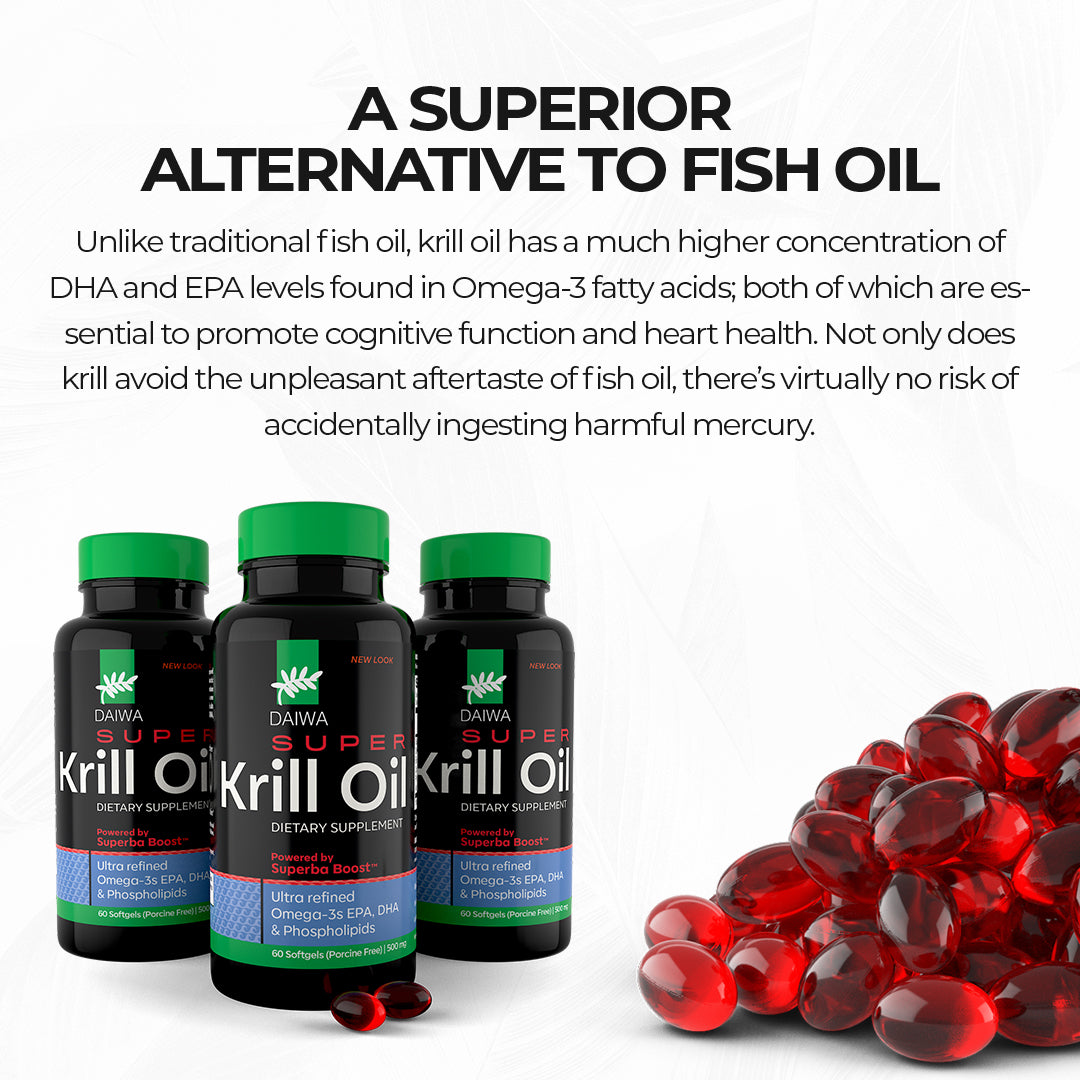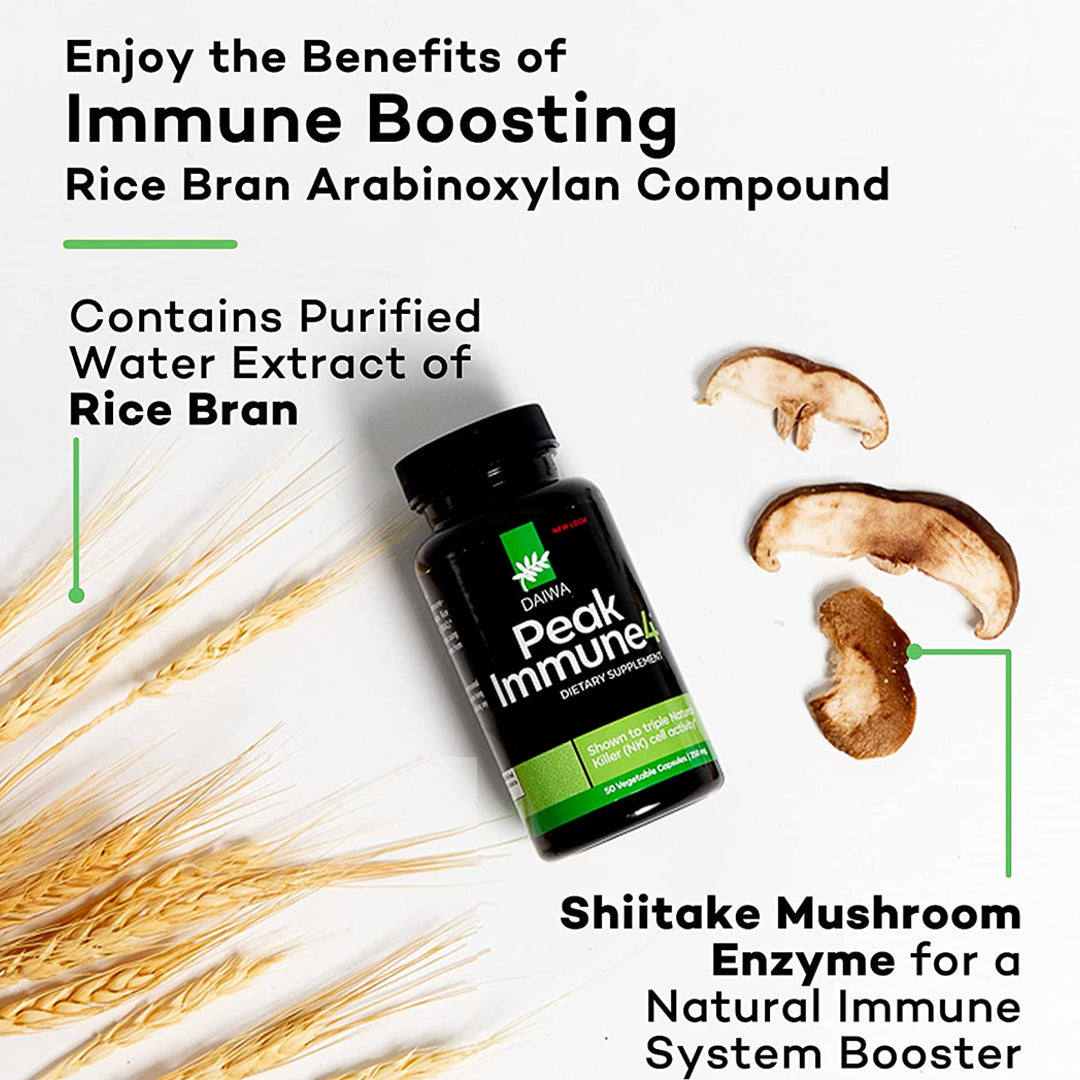At Daiwa Health Development, we prioritize the intricate connections between bodily systems to support overall wellness through targeted supplements. The relationship between gut health and immunity stands out as a cornerstone of human physiology. A robust gut not only facilitates nutrient absorption but also serves as a frontline defense against pathogens, housing a significant portion of the body's immune cells. This synergy ensures that maintaining a healthy gut directly bolsters the immune system, managing a cascade of health issues from chronic inflammation to autoimmune disorders.
The gut, often referred to as the gastrointestinal tract, acts as a dynamic barrier where trillions of gut microbes interact with immune cells. These interactions dictate how effectively the immune system responds to threats. When gut health falters, it compromises immune function, leading to increased susceptibility to infections and inflammatory conditions. Recognizing this link empowers individuals to make informed choices that enhance both gut integrity and host immunity.
The Gut as the Epicenter of Immune Defense
The gut mucosal lining represents one of the largest surfaces in the human body, constantly exposed to potential invaders like pathogens and food antigens. While its primary role involves absorbing essential nutrients, it must simultaneously shield the body from harmful microorganisms and toxins. This dual function explains why the gut harbors more than 70% of the body's immune cells, making it a pivotal reservoir for immune activity. In fact, the intestinal wall contains the largest collection of tissue macrophages, specialized immune cells that engulf and destroy pathogens.
Does gut health affect your immune system? Absolutely. A well-maintained gut fosters a protective immune response, while disruptions can lead to immune dysregulation. For instance, the gut-associated lymphoid tissue (GALT) comprises specialized structures that support both the innate immune system and the adaptive immune system. Goblet cells within this tissue secrete mucin, a gel-like substance that traps pathogens, preventing them from adhering to intestinal epithelial cells. Paneth cells contribute by releasing defensins, antimicrobial peptides that eliminate harmful microbes, along with substances like lysozyme and cathelicidins to fortify the mucosal barrier.
The innate immune system relies on these mechanisms for immediate protection, while the adaptive immune system learns from exposures to mount targeted responses. This setup ensures immune homeostasis, where the immune system tolerates beneficial microbes but aggressively combats intruders.
Gut Microbiome: The Unsung Hero of Immunity
The gut microbiome, consisting of over 40 trillion microbes, plays a central role in modulating the immune system. These gut microbes, including gut bacteria and other microorganisms, coexist symbiotically, educating the immune system from birth to differentiate between commensal bacteria and pathogens. This education is crucial for maintaining immune tolerance and preventing overreactions that could lead to autoimmune disorders .
Gut microbiota composition influences everything from local gut immunity to systemic effects. Beneficial bacteria within the gut microbiome compete with invaders for resources, produce antimicrobial compounds, and generate short-chain fatty acids through the fermentation of complex carbohydrates. These short-chain fatty acids, such as butyrate, nourish intestinal epithelial cells, strengthen the gut barrier, and regulate immune responses by modulating regulatory T cells and B cells.
Imbalances in the gut microbiome, known as gut dysbiosis, disrupt this harmony. Gut dysbiosis can trigger intestinal inflammation, contributing to conditions like inflammatory bowels, including ulcerative colitis. Beyond the gut, it links to systemic autoimmune diseases, autoimmune arthritis, and even diabetes mellitus, highlighting how the gut microbiome bridges local and whole-body health.
Is 80% of the Immune System in the Gut?
A common query arises: Is 80% of the immune system in the gut? Research indicates that approximately 70-80% of immune cells reside in the gut, underscoring its dominance in immune function. The gut's vast surface area and constant exposure to environmental factors necessitate this concentration. Intestinal macrophages, dendritic cells, and other immune cells patrol this area, ensuring rapid detection and neutralization of threats.
This high density of immune cells in the gastrointestinal tract means that gut health directly impacts overall immune health. When the gut lining remains intact, it supports mucosal immunity, preventing pathogens from breaching the barrier and entering the bloodstream. Disruptions here can lead to chronic inflammation, weakening the immune system's ability to maintain balance.
The Interplay Between Gut Microbes and Immune Cells
Gut microbes interact intimately with immune cells, shaping immune responses through various signaling pathways. For example, segmented filamentous bacteria in the gut microbiome promote the differentiation of T helper 17 cells, which are vital for combating extracellular pathogens and maintaining intestinal homeostasis. Meanwhile, commensal microbiota influence B cells to produce antibodies, enhancing humoral immunity.
The host immune system, in turn, regulates gut microbiota composition to favor beneficial microbes over harmful ones. This bidirectional communication ensures that the gut microbiome supports adaptive immunity while the immune system curbs overgrowth of pathogenic species. Alterations in gut microbiota composition, often due to antibiotic treatment or poor diet, can shift this balance, leading to immune dysregulation.
Pro Tip: Monitor antibiotic use carefully, as unnecessary exposure can deplete beneficial bacteria, paving the way for opportunistic infections. Instead, focus on rebuilding with targeted interventions to restore microbial diversity.
How Diet Affects Gut Health and Immunity
Diet affects the gut microbiome profoundly, with processed foods high in sugars and fats promoting dysbiosis, while a healthy diet rich in fiber sustains a diverse microbial community. Complex carbohydrates from fruits and vegetables feed gut bacteria, leading to the production of short-chain fatty acids that dampen inflammatory responses and support immune cells.
Environmental factors, including diet, exercise, and stress, modulate the gut microbiome and the immune system. A diet low in fiber allows pathogenic bacteria to thrive, increasing risks of chronic inflammation and autoimmune diseases. Conversely, incorporating fermented foods introduces beneficial microbes, enhancing gut microbial communities and bolstering host immunity.
Studies show that switching to a Western-style diet alters gut microbiota composition within days, elevating markers of inflammation. To counteract this negative aspect, prioritize whole foods that promote a healthy gut microbiome, which in turn fortifies the immune system against pathogenesis.
The Role of Gut Barrier Integrity
The gut barrier, formed by tightly joined epithelial cells, acts as a selective filter, allowing nutrient uptake while blocking pathogens. Intestinal epithelium integrity depends on a healthy gut microbiota, which secretes metabolites to reinforce this barrier. Breaches in the gut lining, often from gut dysbiosis, permit toxins to leak, triggering systemic immune responses and chronic inflammation.
Maintaining this barrier involves antimicrobial peptides and mucins that protect against intracellular pathogens and other microorganisms. When intact, it supports immune homeostasis and manages inflammation.
Gut Dysbiosis and Its Far-Reaching Consequences
Gut dysbiosis emerges from factors like antibiotic treatment, leading to reduced microbial diversity and overgrowth of harmful species. This imbalance disrupts the gut microbiome, impairing immune function and contributing to conditions such as Clostridium difficile infections and inflammatory bowels disease.
Links extend to extra-intestinal issues, including rheumatoid arthritis and type 2 diabetes, where altered intestinal microbiota fuels immune dysregulation. Systemic autoimmune disorders often trace back to intestinal inflammation, emphasizing the gut's role in health.
Chronic Inflammation: A Silent Threat
Chronic inflammation arises when the immune system remains in a heightened state, often due to persistent gut dysbiosis. This ongoing inflammatory response damages tissues, exacerbating autoimmune disorders and weakening overall immunity. Short-chain fatty acids from a healthy gut microbiome counteract this phenomenon by managing inflammatory pathways.
Addressing chronic inflammation requires restoring gut microbiota balance, which can mitigate risks of ulcerative colitis and other inflammatory issues.
Autoimmune Disorders and the Gut Connection
Autoimmune disorders occur when the immune system attacks healthy tissues, frequently linked to gut dysbiosis. For example, in rheumatoid arthritis, altered gut microbes trigger aberrant immune responses. Similarly, ulcerative colitis involves immune dysregulation in the gastrointestinal tract.
Restoring a healthy gut microbiota can modulate these responses, offering a pathway to manage autoimmune disorders through gut-focused strategies.
Signs of a Weak Immune System
What are 5 signs of a weak immune system? Frequent infections, such as recurring colds or gastrointestinal issues, signal compromised immunity. Persistent fatigue, even after rest, indicates that immune cells are overtaxed. Slow-healing wounds suggest impaired immune function, as the body struggles to repair tissues. Digestive problems, like bloating or irregular bowel movements, often stem from gut dysbiosis affecting the immune system. Lastly, allergies or skin rashes may reflect an overreactive or unbalanced immune response.
These signs highlight how gut health underpins immune strength, urging proactive measures to address underlying issues.
The Impact of Exercise on Gut Microbes
Exercise influences gut microbes positively, with studies showing that active individuals harbor more diverse gut microbiota. This diversity enhances immune responses, managing chronic inflammation. Regular physical activity promotes beneficial bacteria, which in turn support the immune system by improving gut barrier function.
Incorporating movement into daily routines fosters a healthy gut microbiome, amplifying host immunity against environmental factors.
Antibiotics and Gut Health: A Double-Edged Sword
While essential for treating infections, antibiotics can devastate gut bacteria, leading to gut dysbiosis. Research demonstrates that antibiotic treatment alters gut microbiota composition, inducing inflammatory responses in gut tissues. To mitigate this problem, limit use to necessary cases and replenish with beneficial microbes, post-treatment.
Pro Tip: After antibiotics, focus on fiber-rich foods and supplements to rebuild the gut microbiome swiftly, ensuring the immune system recovers without prolonged vulnerability.
Prebiotics and Probiotics: Allies in Gut Restoration
Prebiotics, indigestible fibers, nourish gut bacteria, while probiotics introduce live beneficial microbes. Together, they restore a healthy gut microbiome, enhancing immune function. Evidence supports their role in rebuilding after dysbiosis, promoting short-chain fatty acids production and immune homeostasis.
At Daiwa Health Development, our supplements harness natural ingredients to support this restoration, providing a reliable way to strengthen gut health and immunity without synthetic additives.
The 4 R's of Gut Healing
What are the 4 R's of gut healing? This framework from functional medicine guides restoration: Remove harmful factors like processed foods or pathogens; Replace missing elements, such as digestive enzymes or essential nutrients; Reinoculate with beneficial bacteria through probiotics; and Repair the gut lining using supportive nutrients like glutamine.
Applying these steps systematically rebuilds intestinal homeostasis, fortifying the immune system against future threats.
Unique Insights from Functional Medicine
In functional medicine, we view the gut as a holistic ecosystem where bile acids, produced by gut microbes, regulate immune cells and prevent overgrowth of anaerobic bacteria. Disruptions here can lead to immune tolerance breakdowns, fostering conditions like autoimmune arthritis. Supplements targeting these pathways offer precise interventions, drawing on deep expertise to optimize outcomes.
Commensal bacteria also secrete hormones that influence systemic immunity, a nuance often overlooked in conventional approaches. By addressing root causes, functional medicine empowers lasting improvements in gut health and immunity.
Stress and Its Effects on Gut Microbiota
Stress alters gut microbiota composition, increasing permeability of the gut lining and heightening chronic inflammation. Managing stress through mindfulness preserves beneficial microbes, supporting the immune system's efficiency.
The Influence of Age on Gut Health
As we age, gut microbial communities shift, often reducing diversity and weakening immune responses. Proactive strategies, including a healthy diet, maintain a robust gut microbiome, sustaining immune health into later years.
Environmental Factors Beyond Diet
Environmental factors like pollutants can disrupt intestinal bacteria, leading to immune dysregulation. Minimizing exposure protects the gut microbiome and the immune system.
The Gut-Brain Axis and Immunity
The gut microbiome communicates with the brain, influencing mood and immune function. A balanced microbiota supports this axis, reducing stress-induced immune suppression.
Fermented Foods for Microbial Diversity
Incorporating fermented foods boosts beneficial bacteria, enhancing microbial diversity and immune homeostasis.
Hydration's Role in Gut Function
Adequate hydration maintains mucin production, supporting the gut barrier and immune cells.
Sleep and Gut Microbiome Synchronization
Quality sleep aligns circadian rhythms with gut microbes, optimizing immune responses.
Personalized Approaches to Gut Health
Tailoring interventions based on individual microbiota profiles maximizes benefits for the immune system.
Overcoming Common Gut Health Challenges
Addressing issues like leaky gut involves repairing epithelial cells, turning potential weaknesses into strengthened defenses.
Pro Tip: View gut challenges as opportunities to enhance resilience; consistent habits transform vulnerabilities into robust immune support.
Long-Term Strategies for Sustained Immunity
Building a healthy gut requires ongoing commitment to diet, exercise, and supplementation. This foundation ensures the immune system operates at peak efficiency.
Integrating Supplements for Optimal Results
Daiwa Health Development supplements complement lifestyle changes, delivering bioavailable compounds that nurture the gut microbiome and bolster immunity. Our formulations, rooted in scientific research, provide the tools needed for enduring health.
In conclusion, prioritizing gut health and immunity through informed practices yields profound benefits. By fostering a thriving gut microbiome, individuals can fortify their immune system against myriad threats. At Daiwa Health Development, we commit to empowering this journey with premium supplements designed to enhance these vital connections—consider incorporating them to elevate your wellness today.








Leave a comment
All comments are moderated before being published.
This site is protected by hCaptcha and the hCaptcha Privacy Policy and Terms of Service apply.